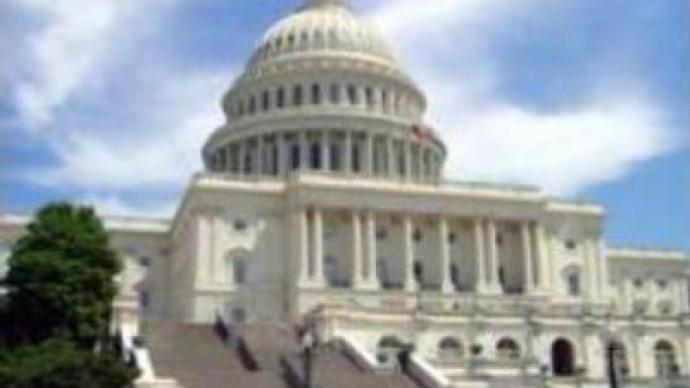Tough going for American military efforts in Congress

President George W. Bush has asked Congress for an increase in military funding to more than a fifth of the total federal budget. It comes after Republicans blocked a resolution opposing Bush's plan to send more troops to Iraq.
It was an attempt to clip the President's war wings, and remind him he's not as powerful as he once was. But the Democrats' effort to force a debate over Bush's Iraq surge plan fell at the first hurdle failing to get the support it needed to allow the debate to begin. Although the resolution was non-binding, it was the first effort in the Democrats-controlled Congress to confront the President over the war.“This resolution is not about Congress taking responsibility, it is the opposite, it is a resolution of irresolutions, with the Senate to take up a symbolic vote of no confidence on an eve of a deceive battle is unprecedented, but it is not inconsequential. It is an act which I feel will discourage our troops, hearten our enemies, and showcase our disunity,” said Senator Joe Liberman.“A 'no' vote on a motion to proceed is a green light for Bush George to proceed down the same failed course of almost four years, a 'no' vote is an endorsement of escalation, sending 48,000 more troops to Iraq and spending at least $US 27 BLN,” agreed Senator Harry Reid.The resolution needed 60 votes for the debate to start. It only got 49. Nevertheless Democrats upset at the vote, vowed to find a way to force the President to change course in Iraq.“If the President does not listen to the majority in Congress and the majority of the American people, we will have to look for other ways to turn this surge around,” warned Senator Joseph Biden.As the fight over Iraq draws to an end, a new battle over the Federal Budget is already brewing on Capitol Hill. The proposed $US 2.9 TLN budget asks Congress to approve an extra $US 100 BLN for the wars in Iraq and Afghanistan in 2007 and $US 145 BLN in 2008.“Our priority is to protect the American people. And our priority is to make sure our troops have what it takes to do their jobs,” said President Bush.Administration officials defended the proposed war-spending increases.“We heard loud and clear from Congress that they were seeking more transparency and more and better information sooner, so they could conduct appropriate oversight,” said Rob Portman from the Management and Budget office.Factoring in the cost increases for the wars in Iraq and Afghanistan, President Bush is proposing to spend a total $US 624 BLN on defence, which according to experts, would push spending for Iraq above the total cost of the Vietnam war.The first Congressional debate over the Iraq war was a temporary win for the Bush Administration, but with the war having claimed the lives of more than 3,000 U.S. troops and the costs in the hundreds of billions of dollars, this is likely to be just the first of many debates in the U.S. Congress.
You can share this story on social media:












